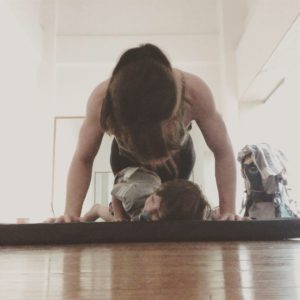In Honor of World Mental Health Day (October 10, 2018)
We talk a lot about freedom in the United States of America.

The freedoms we have in the US of A are amazing. However, an increasing amount of people really don’t get to experience them.
Why?
Depression.
According to the World Health Organization, depression is the leading cause of disability globally. Over 300 million adults across the globe are depressed right now, with 16.2 million of those in the US. A full 10.3 million of those Americans experience an episode that is categorized as ‘significant impairment’.
So are we truly free if depression is on the rise?
Depression, in my experience, is the ultimate freedom killer. So to cut right to the important stuff, here are my C.O.R.E principles I try to follow to manage how I feel. Use these or share these to help you or others fight this invisible wound and take freedom back.
1: I love Anais Nin’s quote, “Our world shrinks of expands in proportion to ones courage.” It takes real courage to stand up to what you fear or are feeling low about. When it comes to depression, I find it helps to stand up to “it” like it is something you do not want in your life, and see it as something you want removed. Remember this disease is NOT you, rather something you struggle with. Shift your focus to how much you have grown and start to help someone else grow around you.
2: It takes breathing hard (exercise) and breathing slow and deep (meditation) to really reap the benefits of what oxygen can do for your body. None of this shallow mouth breathing we typically engage in. Get at least 30 minutes of exercise or movement 5 days a week, and on top of that 5-10 minutes of deep slow breathing a day. With the breathwork, focus on keeping your breath rate to 6-8 breaths per minute. If you want to get even simpler, the next time you have a “reactive” thought come into your head, consider taking 1 loooong breath sequence before you do anything else. Take a 10 second inhale, hold it for 10 seconds, exhale for 10 seconds, and wait 10 more seconds before the next breath. Do that once before you react/feel low and see how it helps you. Think of it as a free drug.
3: Rest. You must sleep 7-9 hours a night according to the National Sleep Foundation. For me this is non-negotiable. I have a toddler so some nights are questionable, but you better believe I protect my sleep like my son protects his binkie.

4: It takes time for tissue to change – up to 12 months for connective tissue depending on the tissue and if it was injured. So start to tend to your gnarly parts and stiff areas DAILY. Areas with a big bang for your buck are your thoracic spine, your side butts, and your upper traps (those pieces of meat riding up to your ears). Mobilizing these is a physical way to relax your physiology. In conjunction with breath-work, it’s amazing. Don’t forget that eradicating stiffness takes time, so spend a minimum of 10 minutes a day on this.
You better believe I take my own advice. Even though I’m traveling, I am working on my C.O.R.E. daily because I know that my future mind and body will thank me for being consistent.
So there you have it. Four C.O.R.E. tools to help navigate depression.
Remember, it’s a daily task. It’s a process, not a pill.
PS. I am not saying medication, hormone therapy, or some other medicinal resources are not helpful. But consider what you can do RIGHT NOW as you read this. If you are interested in learning more about this invisible wound and what you can do about it, listen to Episode 1, of the The My New Normal podcast coming Nov 14th on how to build an unbreakable mind.
